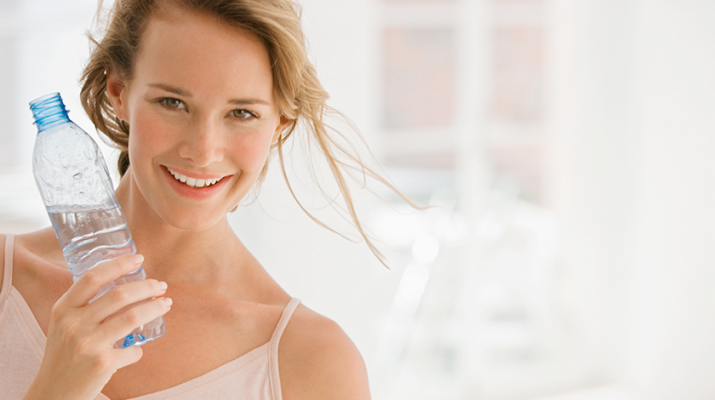How much should you drink?
By Jennifer Fecio McDougall
There’s nothing quite like a glass of water when you’re thirsty. Drink up, and go grab another glass.
Andrea Derosas, board-certified in internal medicine, is a medical doctor at the Buffalo Psychiatric Center. She noted that thirst, the first sign of dehydration, is the body’s way of telling you that you need to drink.
Another sign — your urine may begin getting darker and there may be less of it. “After that, you may experience dry mouth, headache, fatigue, dizziness, rapid heart rate, low blood pressure, or fainting,” she said.
The old adage is that most people should drink six to eight glasses of water per day, but there are certain precautions associated with this. Many of them are well known, and most of them have to do with replacing water the body may be losing. Exercising a lot? If so, your body is losing water through sweat, and it’s important to drink water to ensure the body’s supply doesn’t get low.
If you have diarrhea or are vomiting, your body is losing water, and it’s essential to drink a lot to avoid dehydration.
How about when it’s hot outside? Derosas emphasized that it’s very easy to get dehydrated on a hot summer day, especially if you are active in the hot sun.
If you’re perspiring, that makes you even more prone to dehydration. “Heat exhaustion and heat stroke are very serious complications of being overheated and are almost always exacerbated by dehydration,” she cautioned.
Although it’s important to drink enough water, it’s equally important to make sure you don’t go overboard. “Water intoxication can happen if large amounts of water are consumed in a short period of time, and this is just as dangerous as dehydration; it can even be deadly,” Derosas said. Her recommendation is to keep water handy at all times and drink your six to eight glasses over the course of the day.
In addition, there are special considerations for certain people. Young children may not have the ability to drink the appropriate amount of water without adult assistance. “Therefore, their adult caretakers should remember to carry extra water and to offer it frequently, especially during illnesses and hot weather,” Derosas explained.
She said the elderly may also be at increased risk for dehydration, so it’s important to ensure that their water intake is adequate. However, she issued a caution as well. “Be mindful of the medical conditions of elderly loved ones. For example, if they have congestive heart failure or kidney disease, they may be prone to fluid overload, so it’s important to speak to their doctor before making any changes to the amount of fluids you are providing,” she said.
Meeting hydration goals
Beth Schoellkopf was a busy mom, wife, and science teacher when she began a weight-loss journey using the Beachbody system. She lost 35 pounds, but she said the best thing was feeling better, healthier, and happier. She also learned about the importance of drinking water and staying hydrated.
Now an online health and fitness coach, Schoellkopf aims to drink half of her body weight in ounces of water every day. She said many people find it very challenging to meet this goal when they first start out, but it soon becomes second nature. “The first week can be really tough, and people feel like they’re always in the bathroom, but once your body gets used to being hydrated, you’ll crave water if you don’t drink enough of it,” she explained. Schoellkopf said hydration brings numerous benefits — feeling better, more energy, joints feel better, digestion is better, skin feels better, organs are healthier, and food tastes better.
Schoellkopf offered several pro tips for staying hydrated. “As a teacher, I have to be strategic about when I fill my water bottle,” she noted, so she sets mini goals for herself throughout the day. She aims for a third of her daily intake goal before work, another third before lunch, and the final third before dinner. She said this system has an advantage — “If you get all of your ounces in before 8 p.m., you won’t be getting up all night to go to the bathroom.”
For those who find water somewhat boring, Schoellkopf has a solution. “There are so many ways to infuse water; some people use lemons, mint, cucumbers, or even a little bit of honey. You just have to figure out what appeals to you,” she said.

